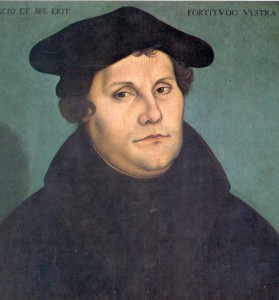 Scott Hendrix notes Martin Luther’s comments on holiness from a sermon by Luther given on June 24, 1525.
Scott Hendrix notes Martin Luther’s comments on holiness from a sermon by Luther given on June 24, 1525.
The greatest holiness one could imagine drew us into the cloister. . . . We fasted and prayed repeatedly, wore hair shirts under woolen cowls, led a strict and austere life. In short, we took on a monkish holiness. We were so deeply involved in that pretentious business that we considered ourselves holy from head to toe.
Luther had lived as a monk for 16 years by the time he was excommunicated in 1521. Nevertheless, he came to see that monastic holiness was an unattainable goal. Luther ultimately sought a less demanding and more merciful Christianity, says Hendrix, which would liberate people from anxiety about reaching heaven and redirect their concern toward others in place of themselves (in Scott Hendrix, Martin Luther: Visionary Reformer, 27, 13).
In an earlier letter, written to George Spenlein, another monk, Luther said, “Beware of aspiring to such purity that you will not wish to be looked upon as a sinner, or to be one. For Christ dwells only in sinners” (April 8, 1516, cited in Hendrix, 47).